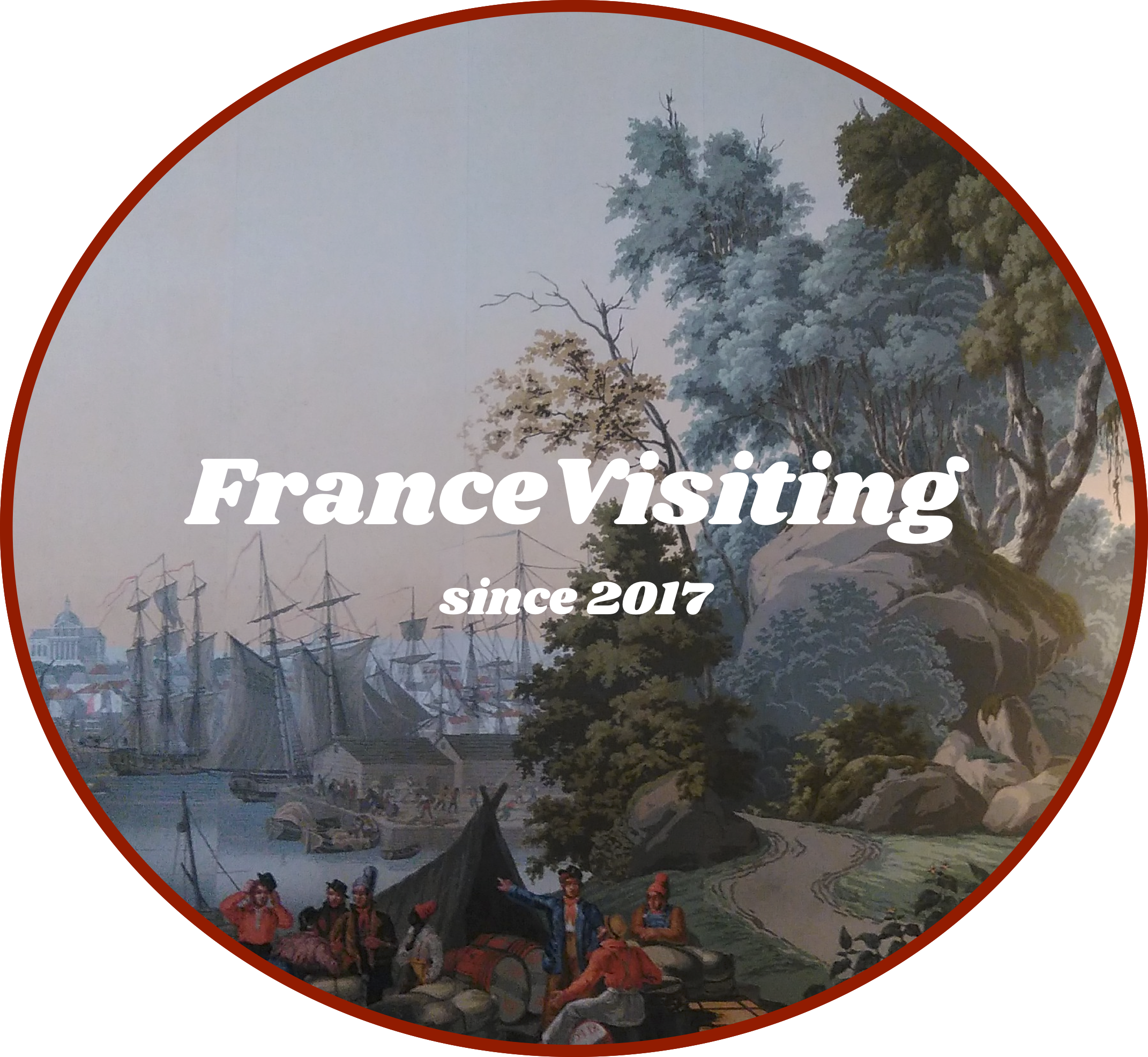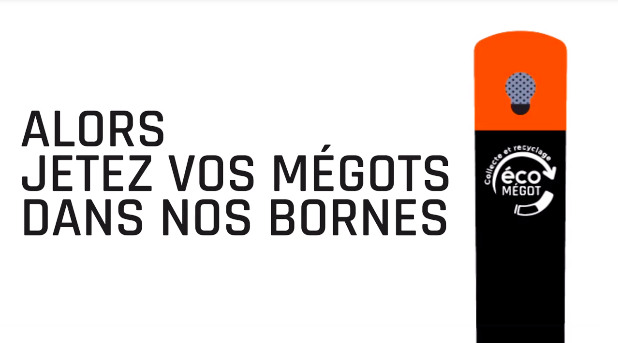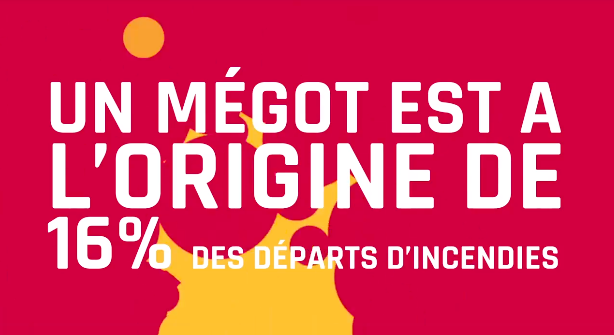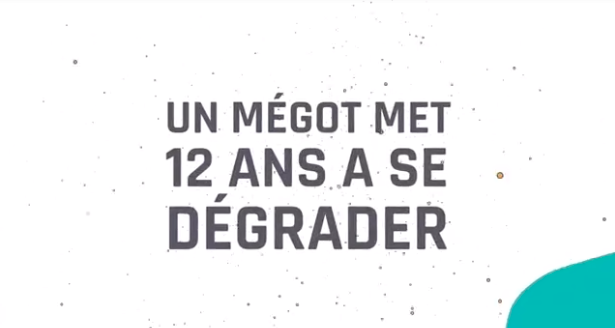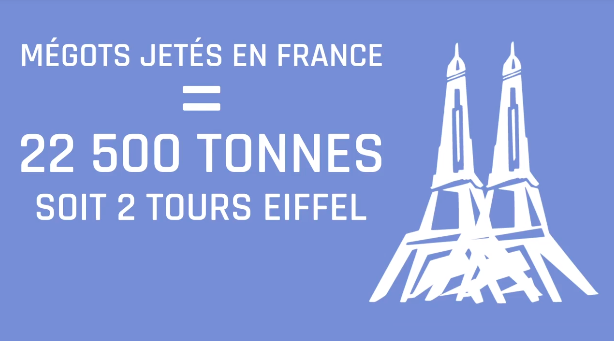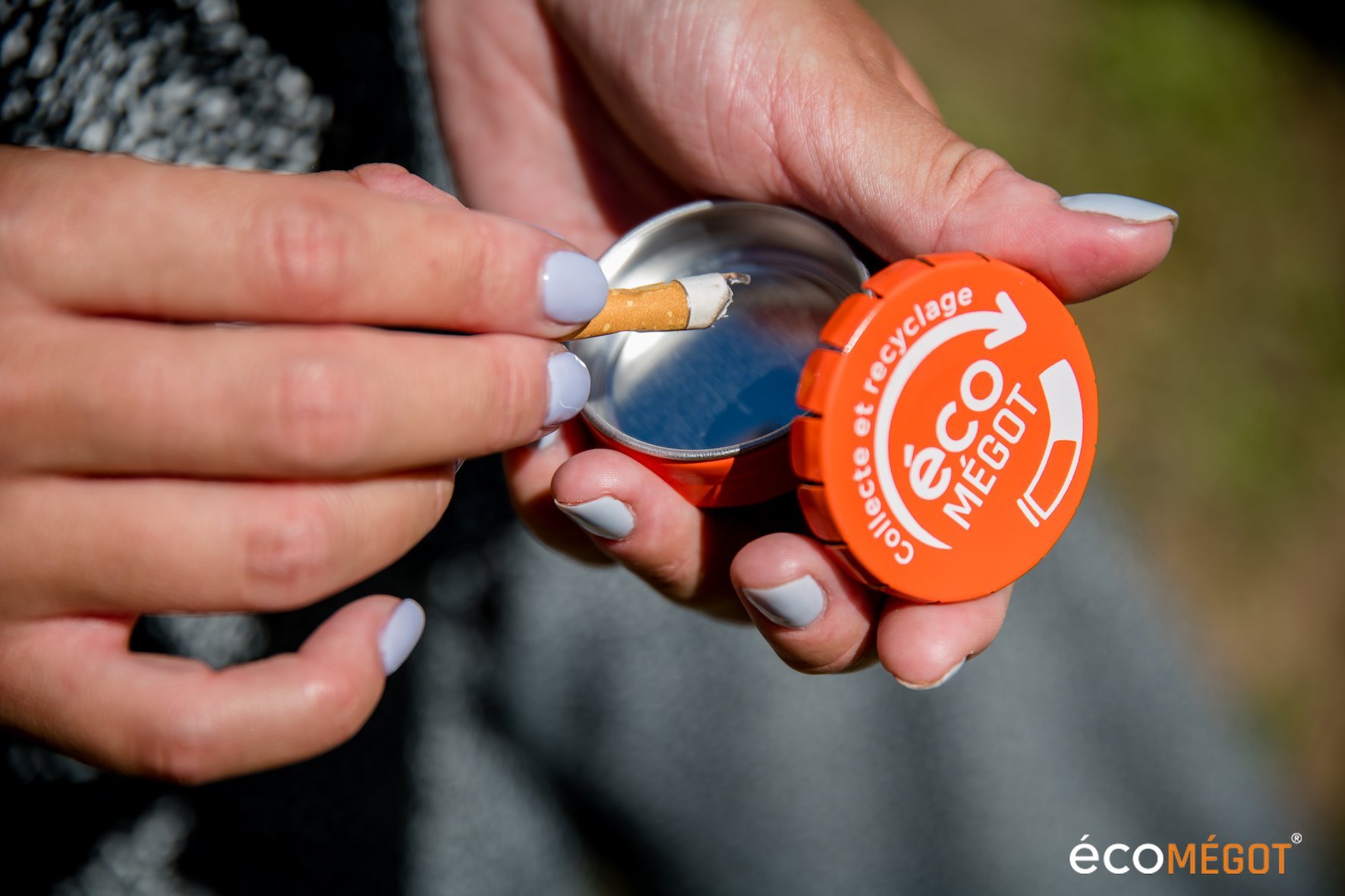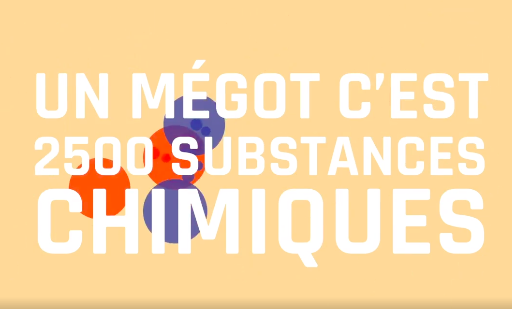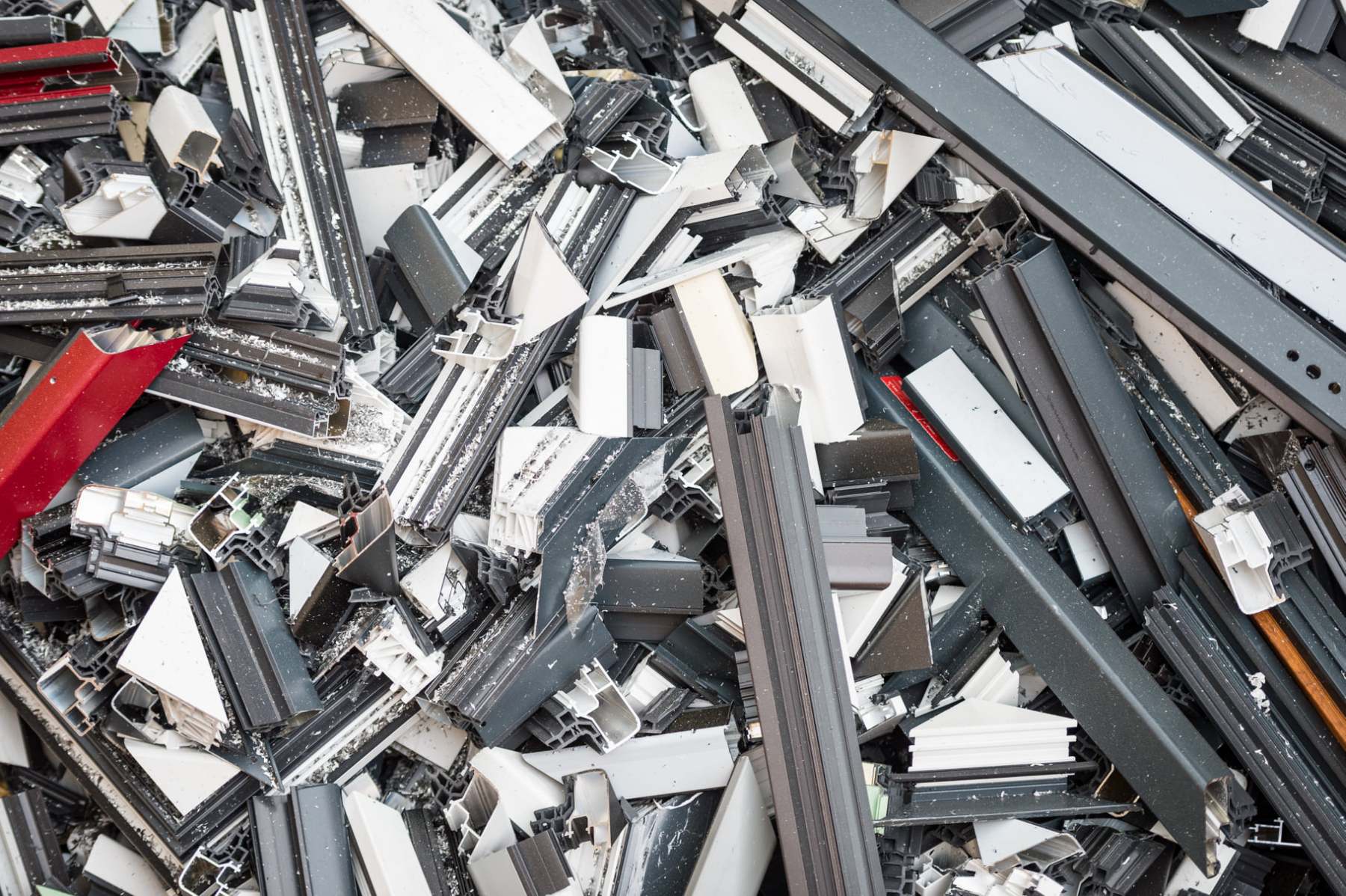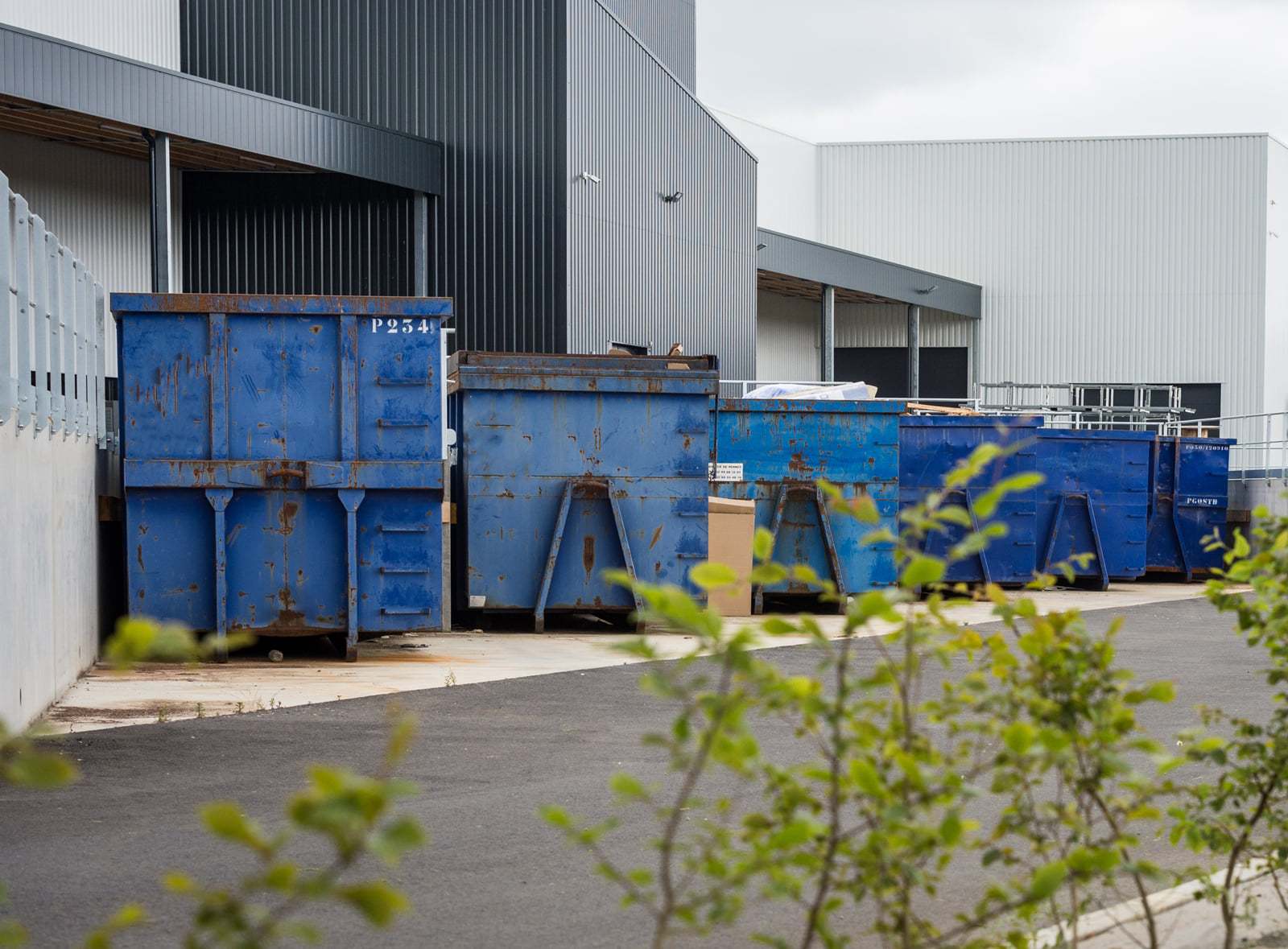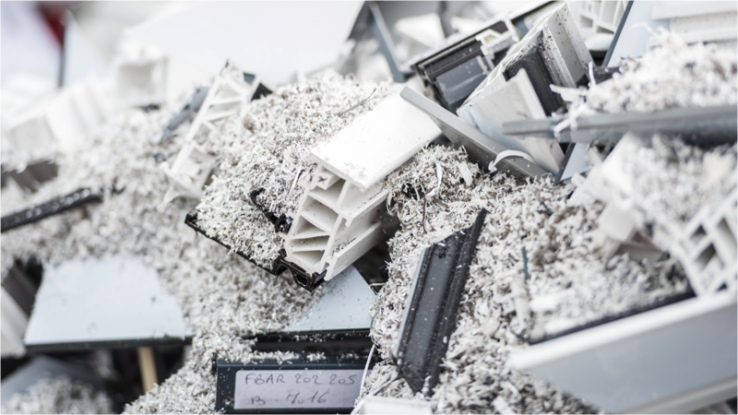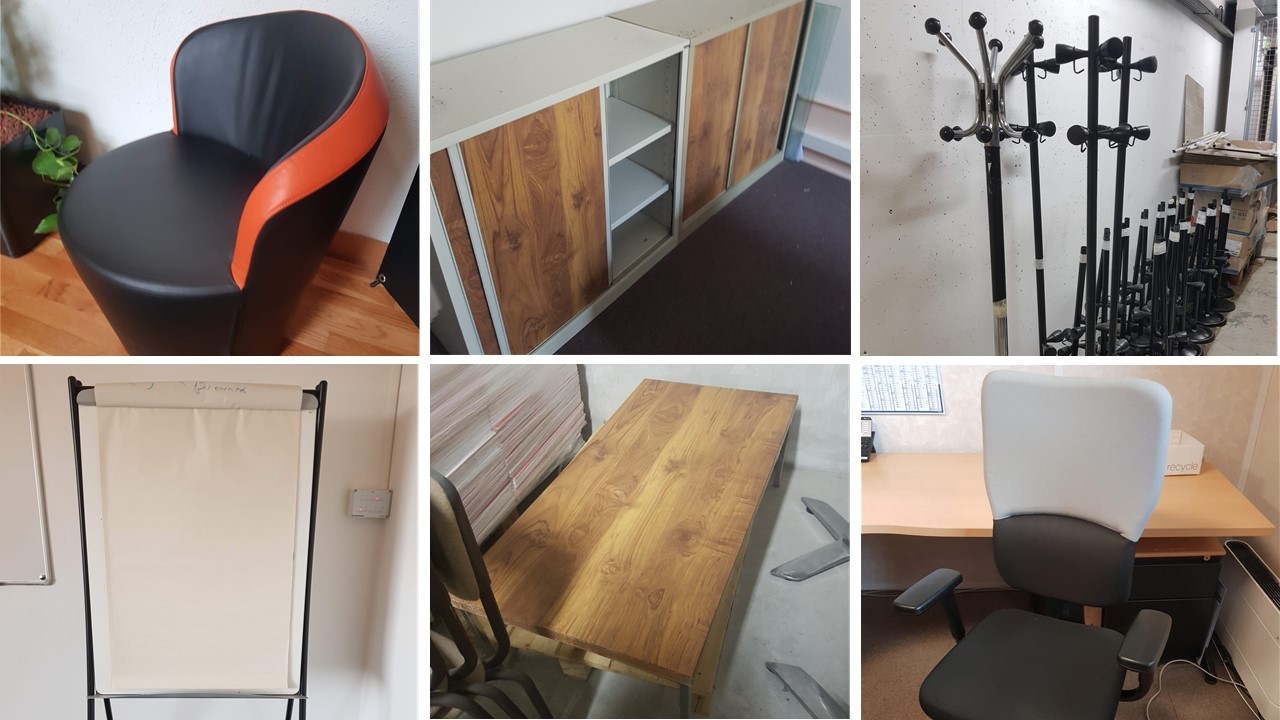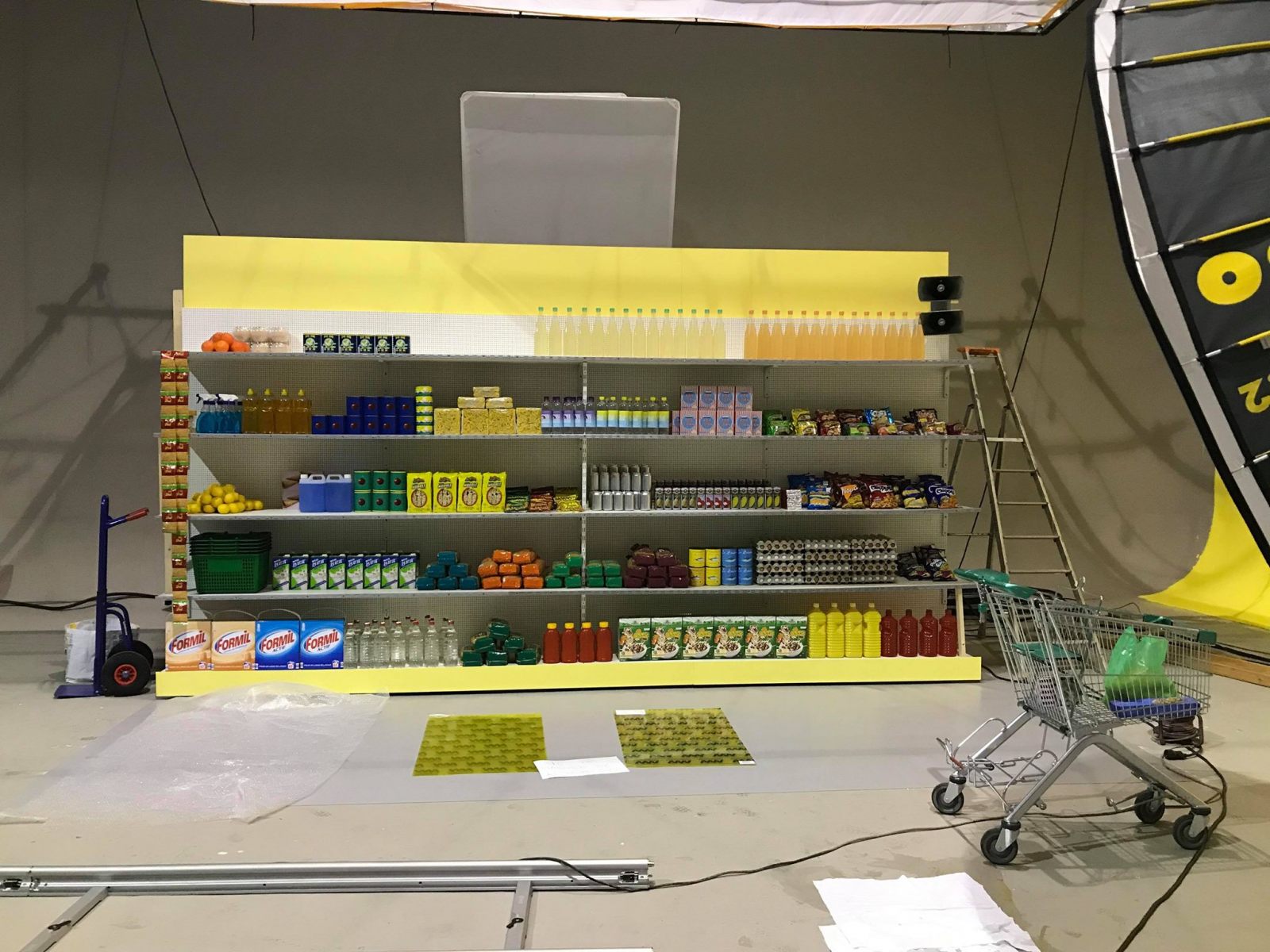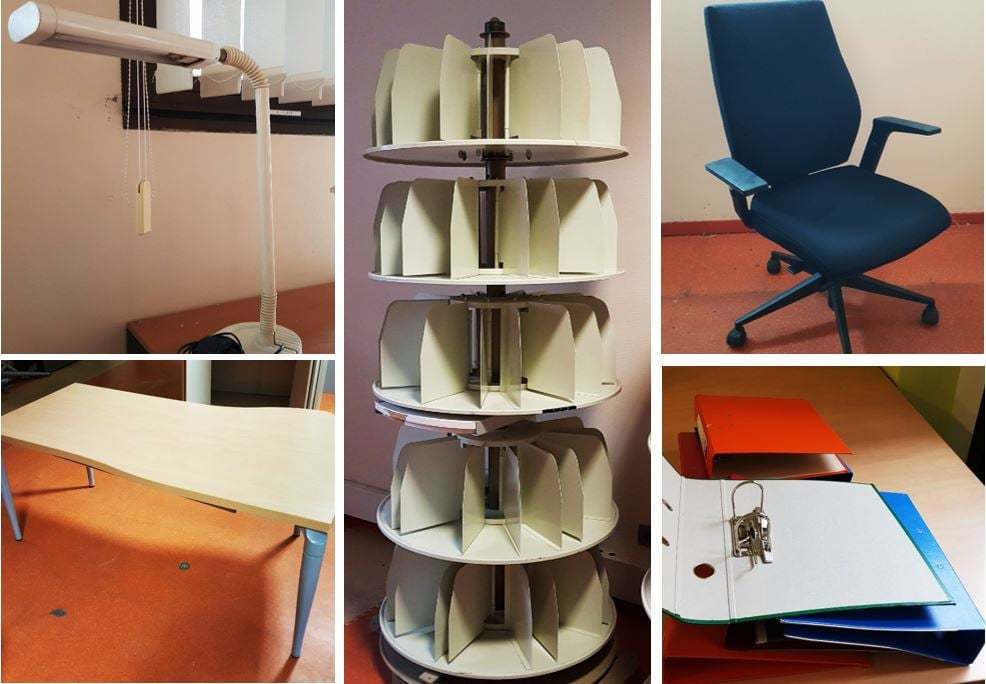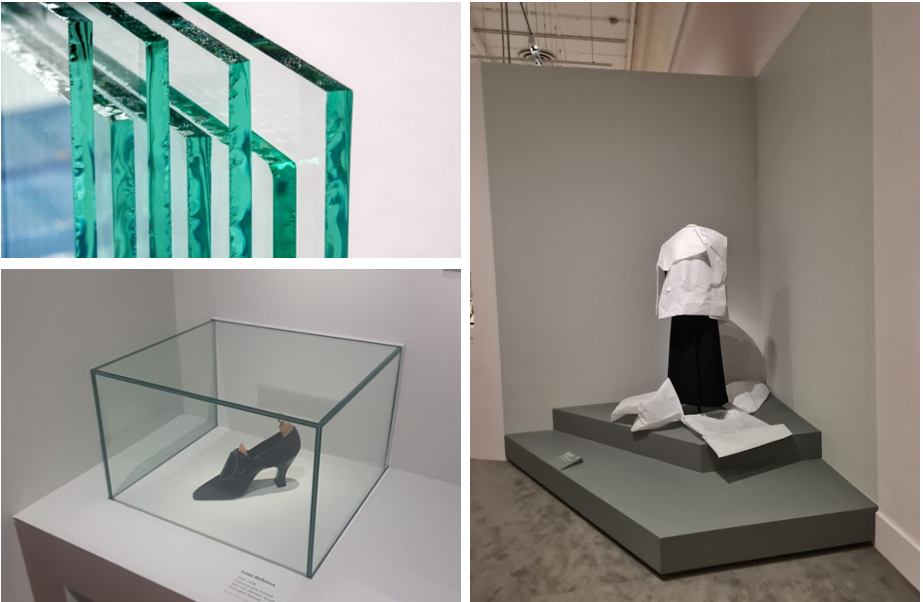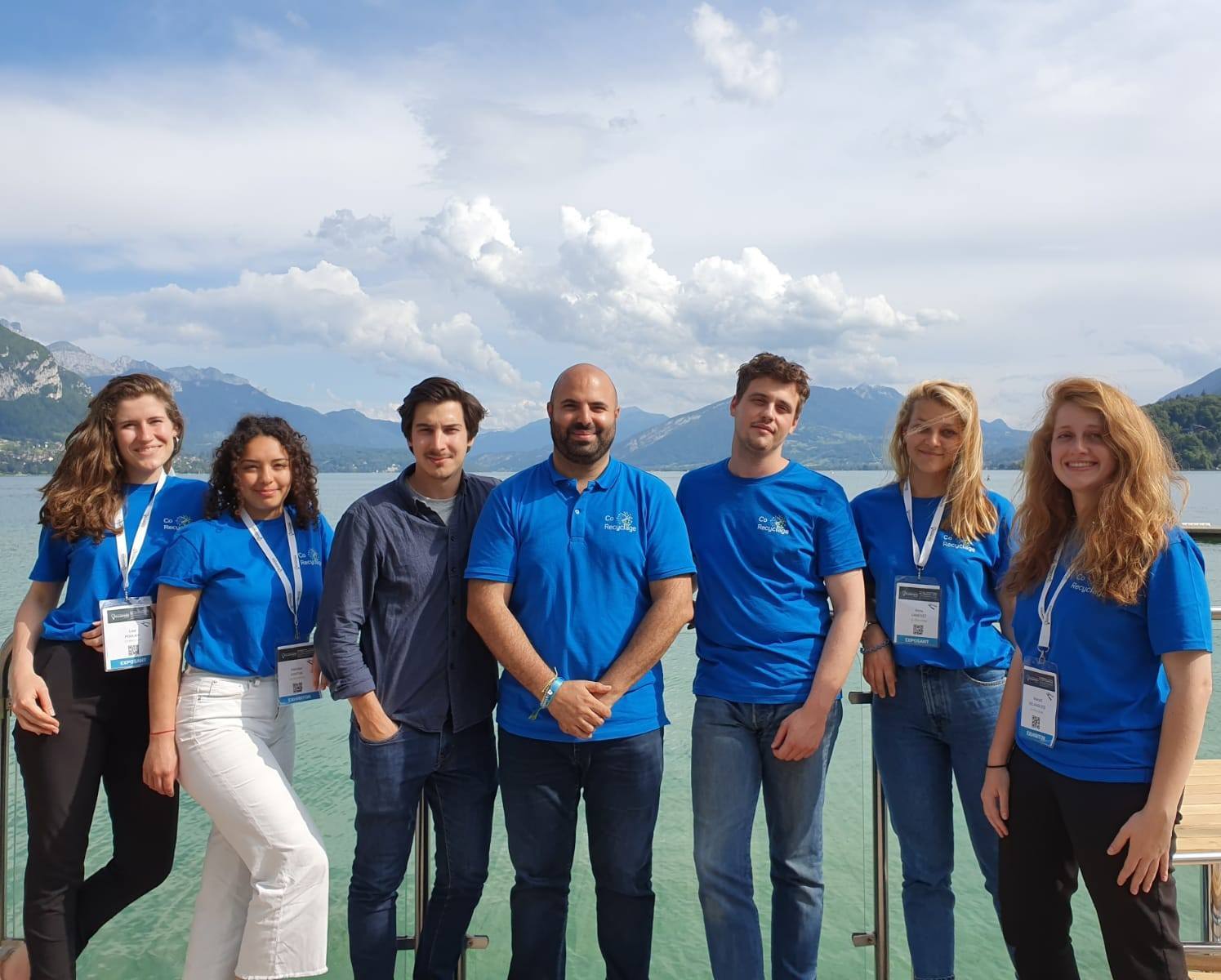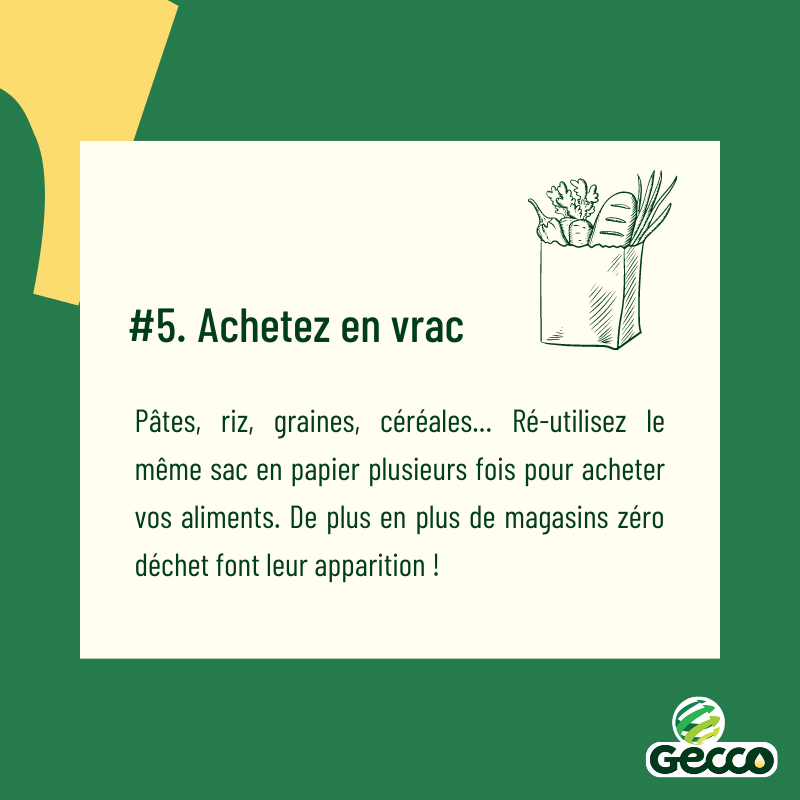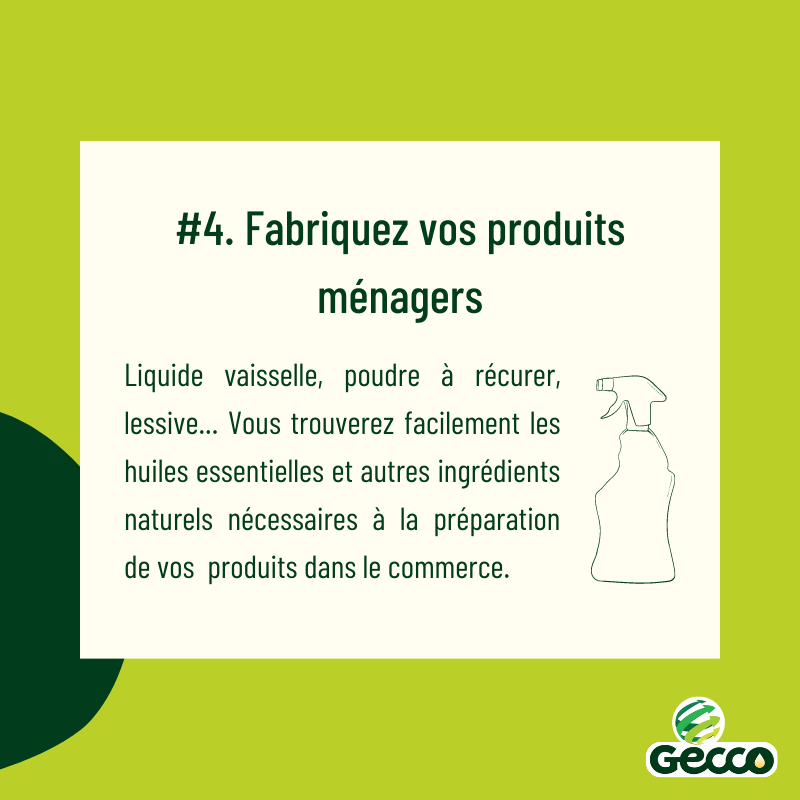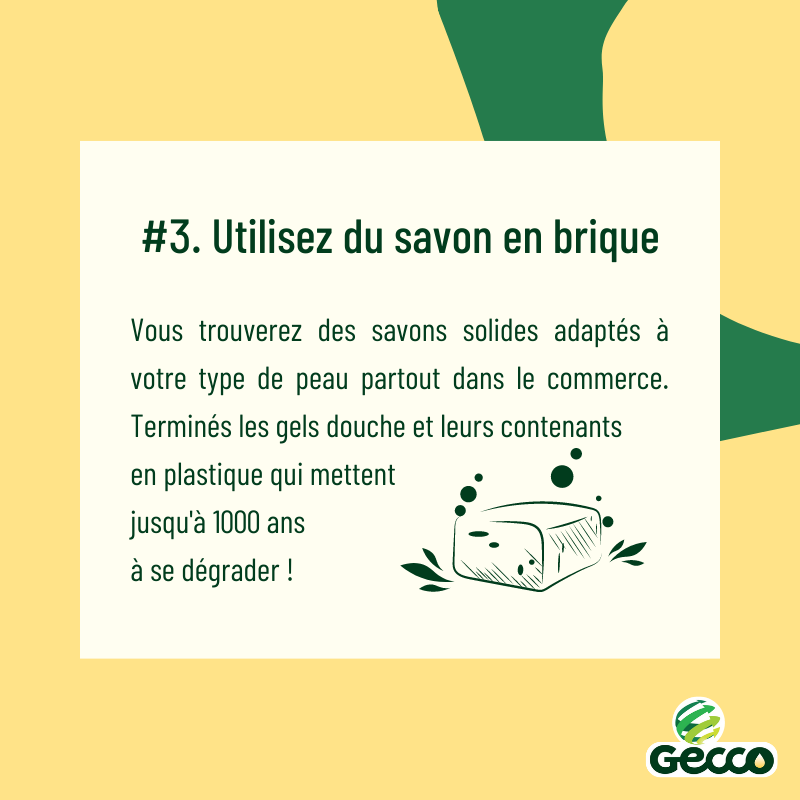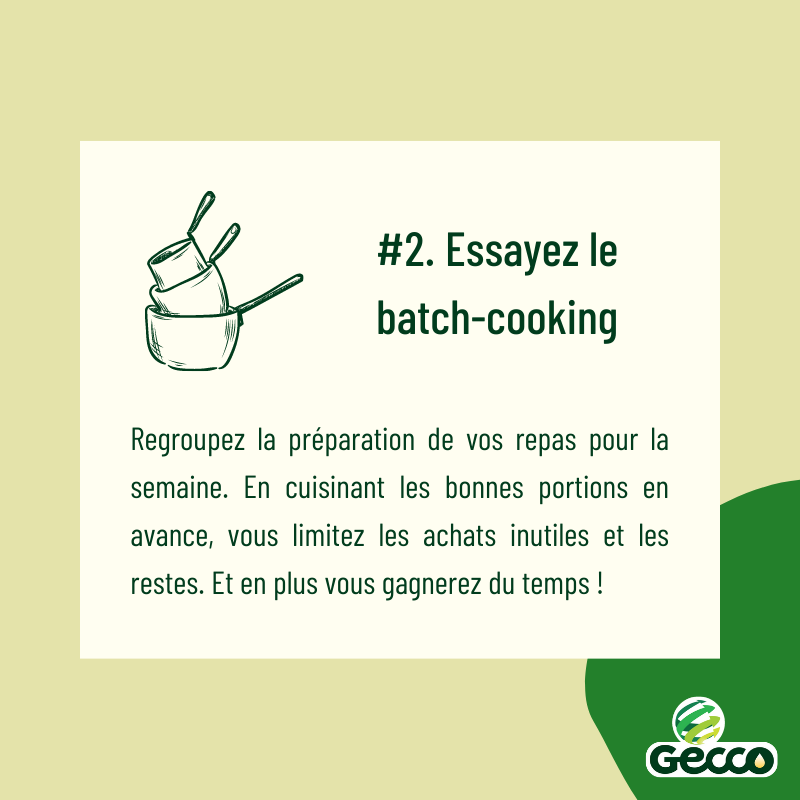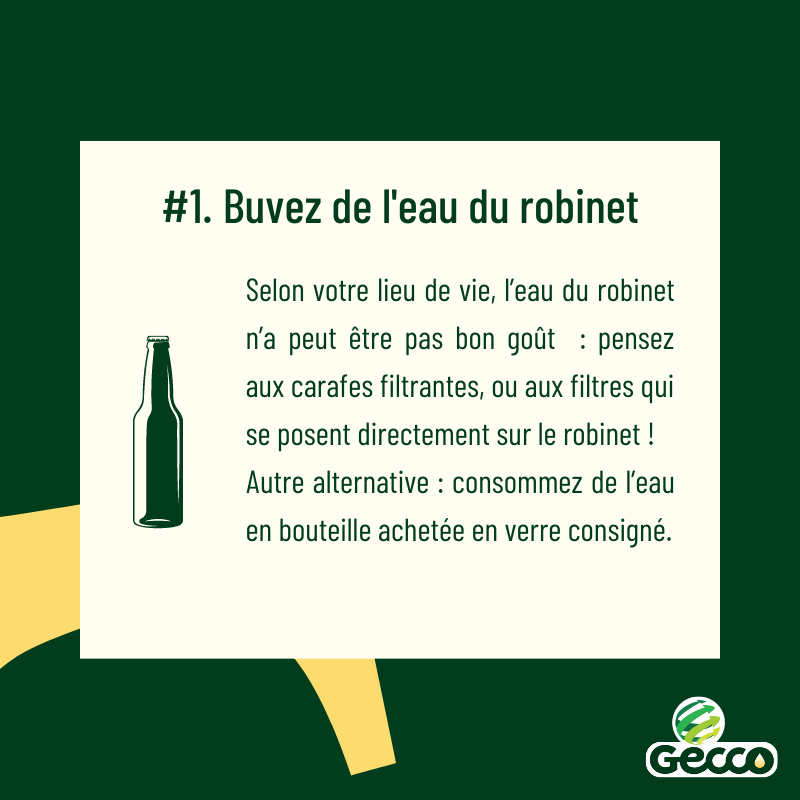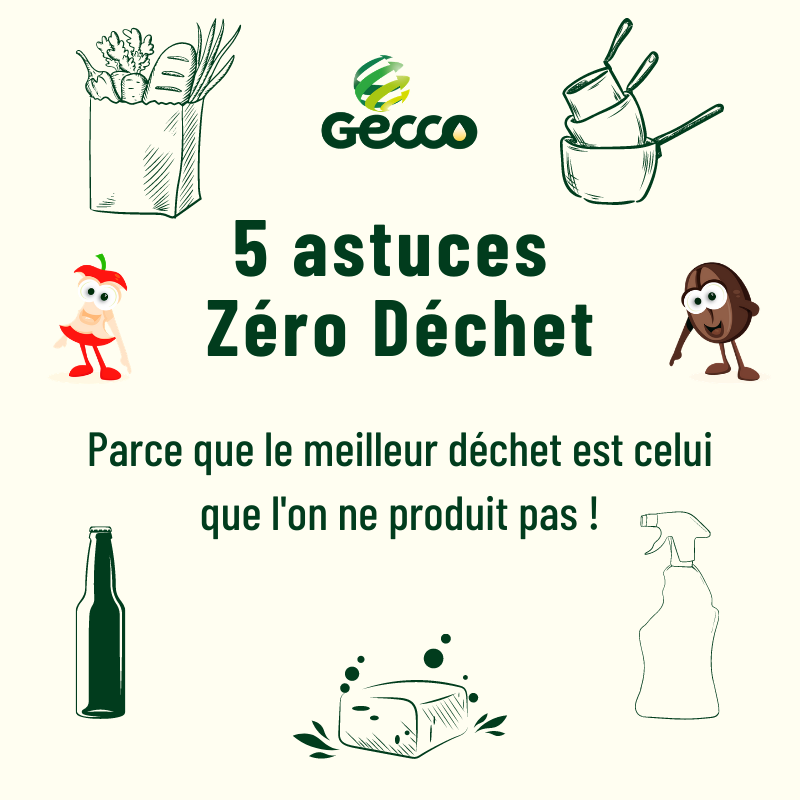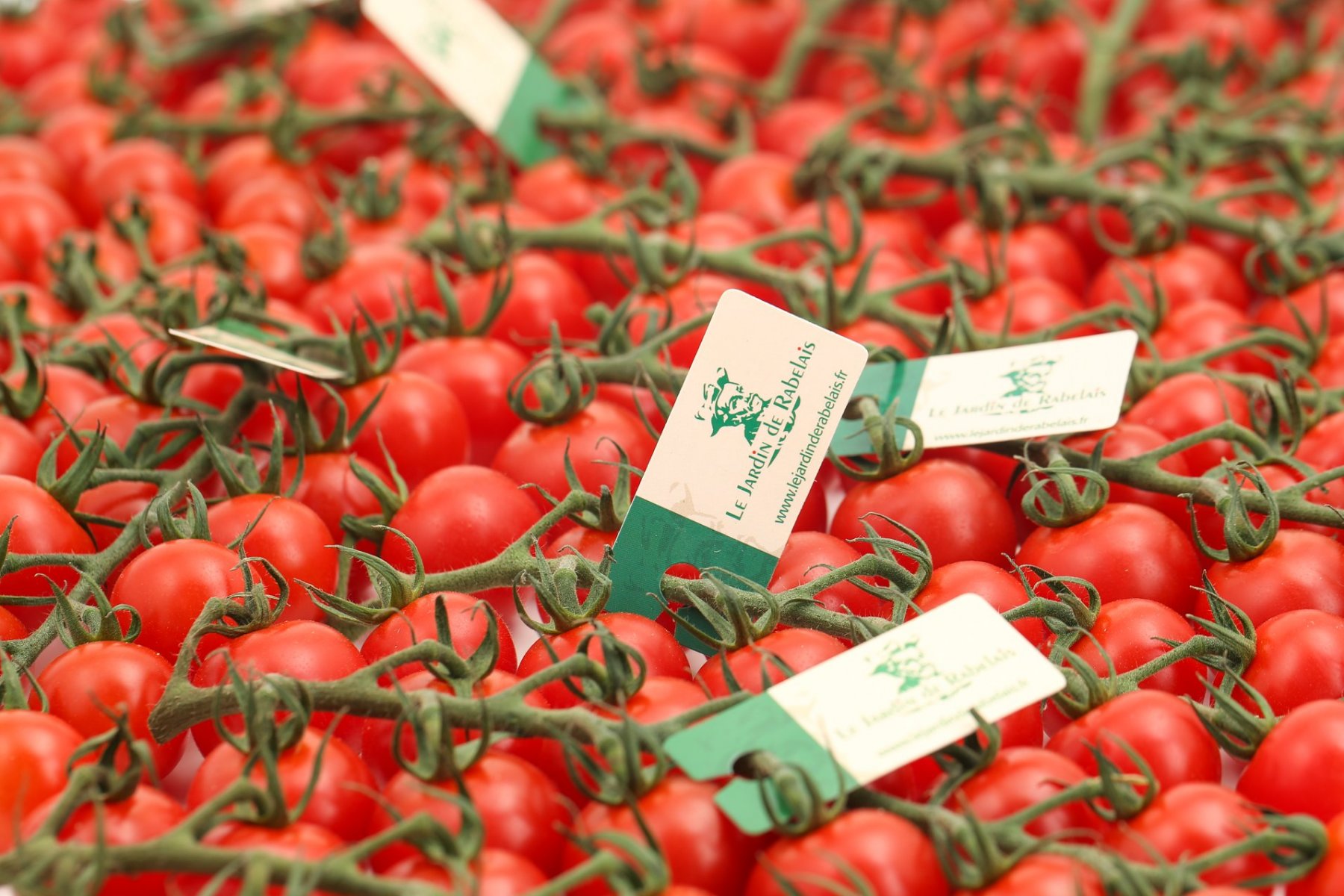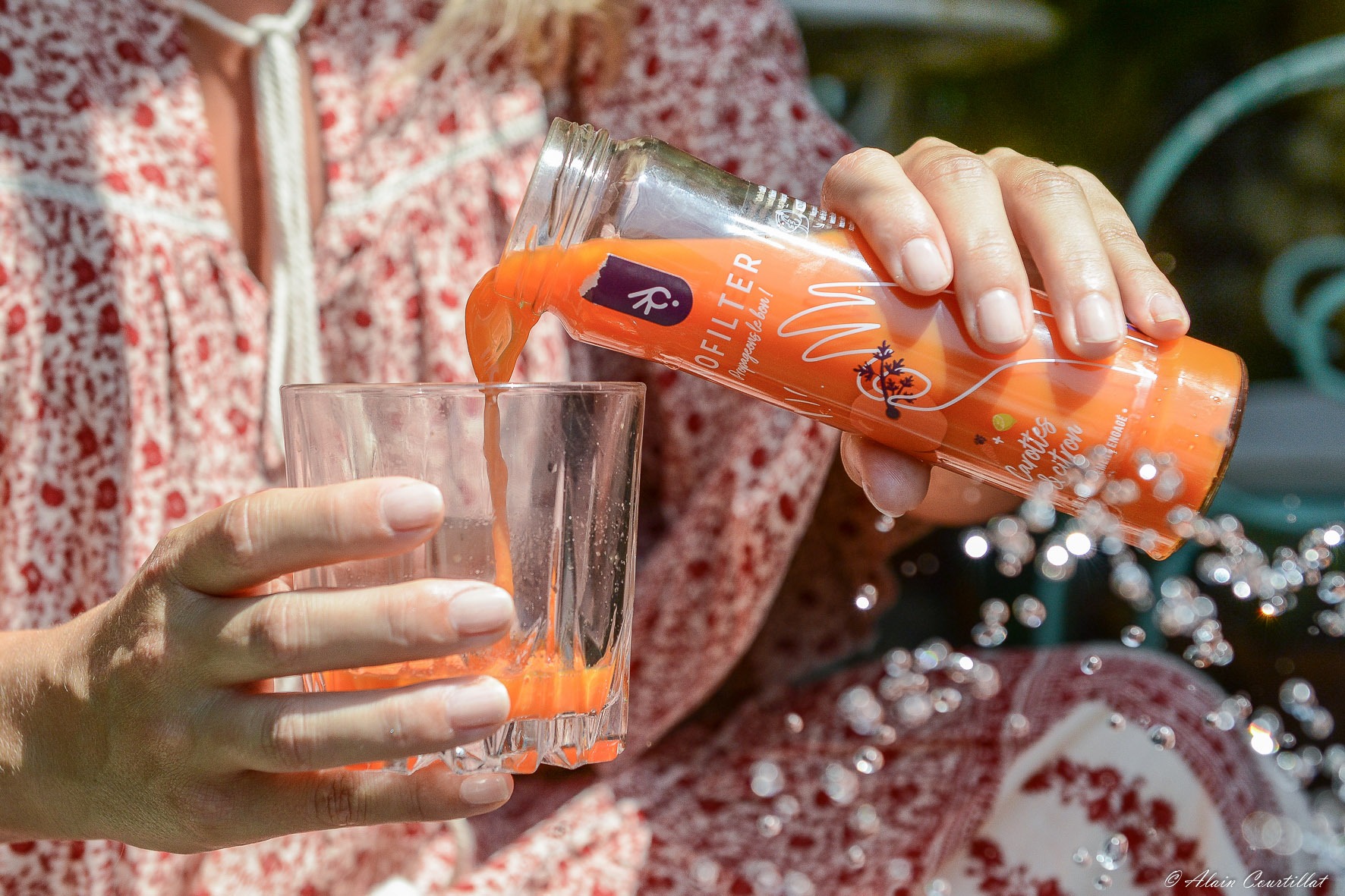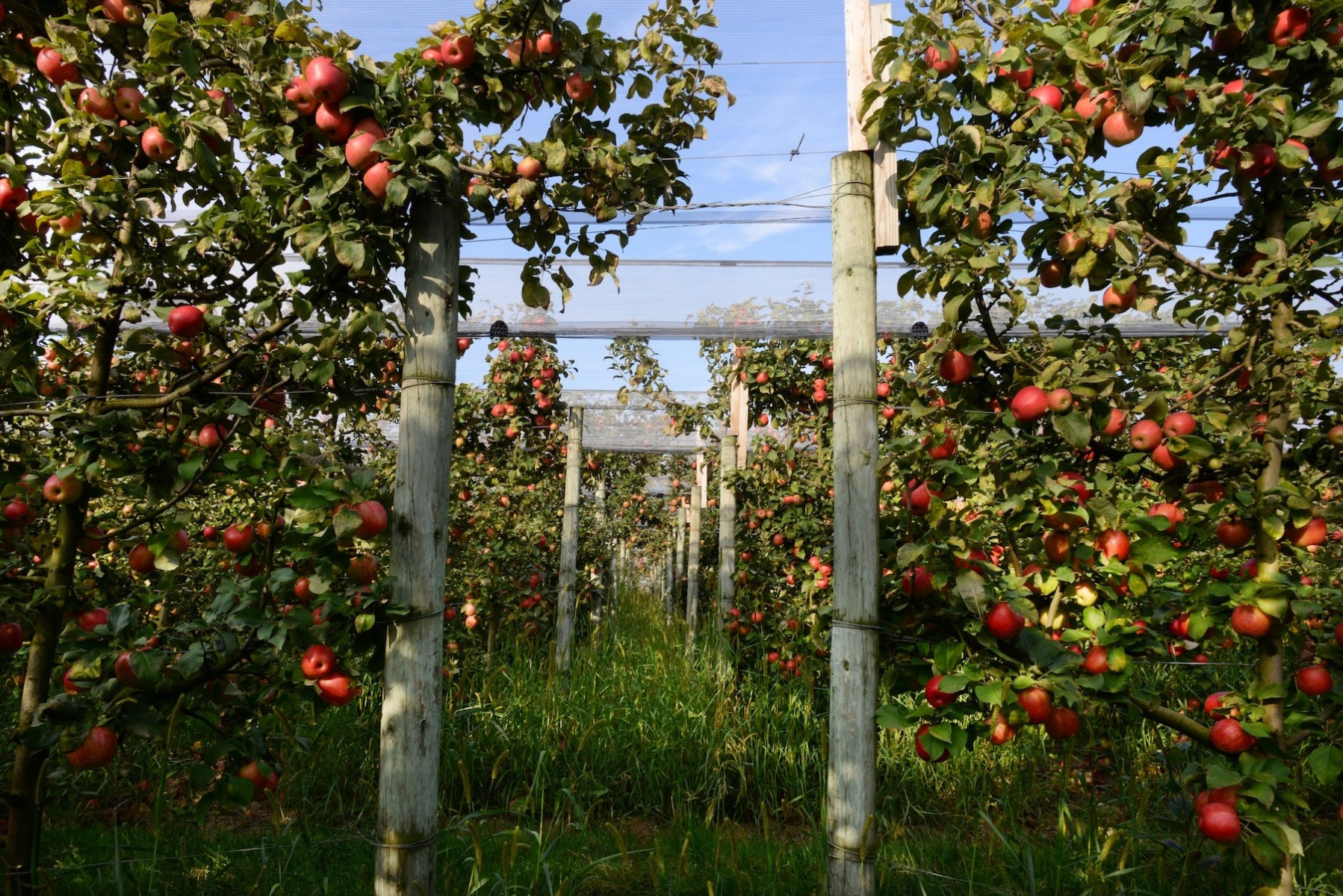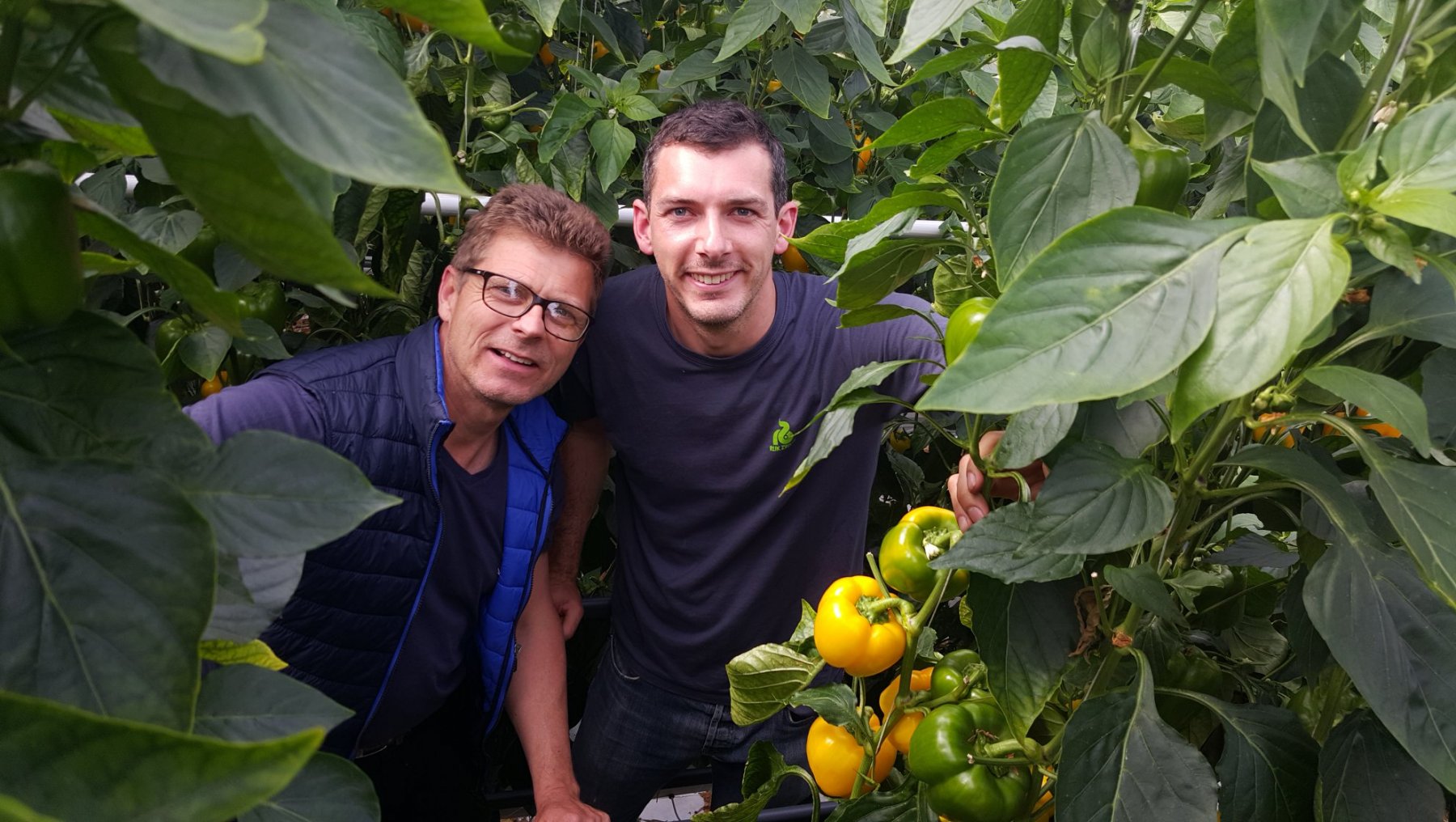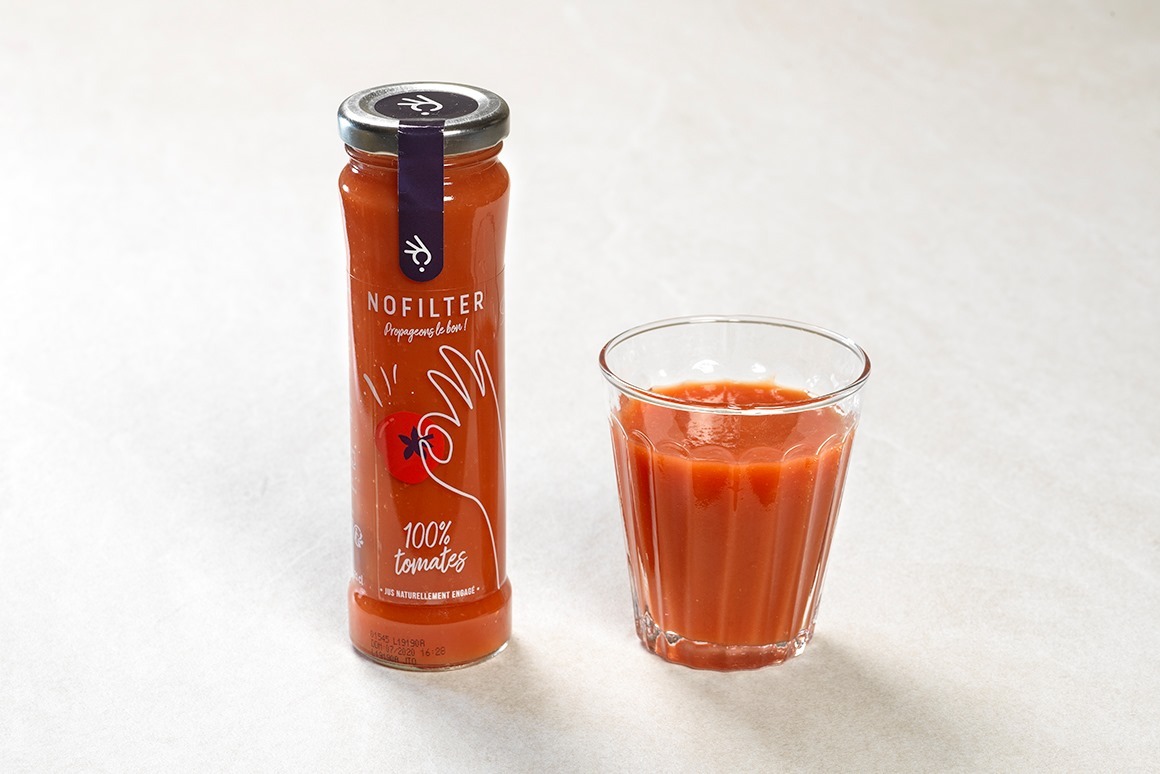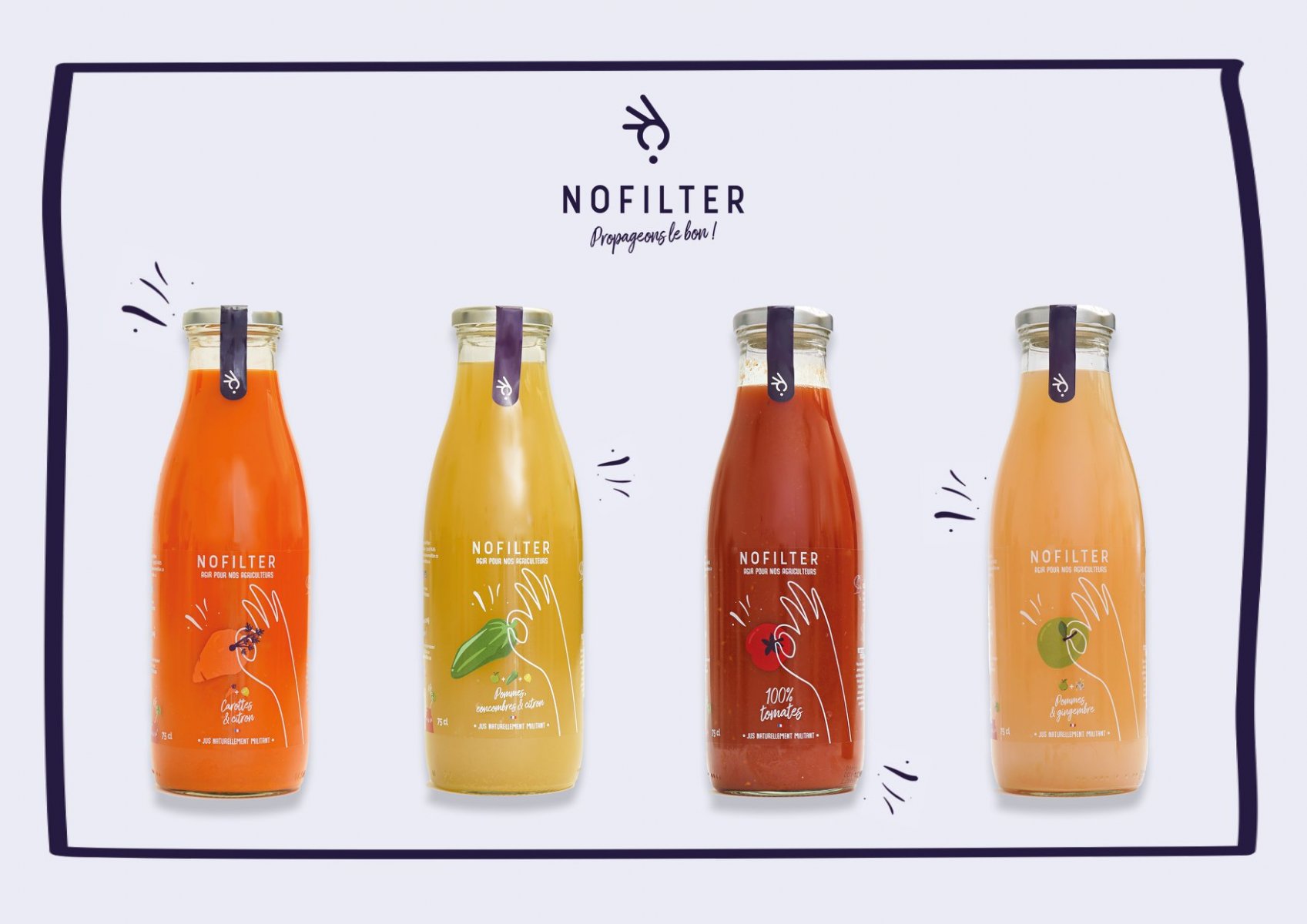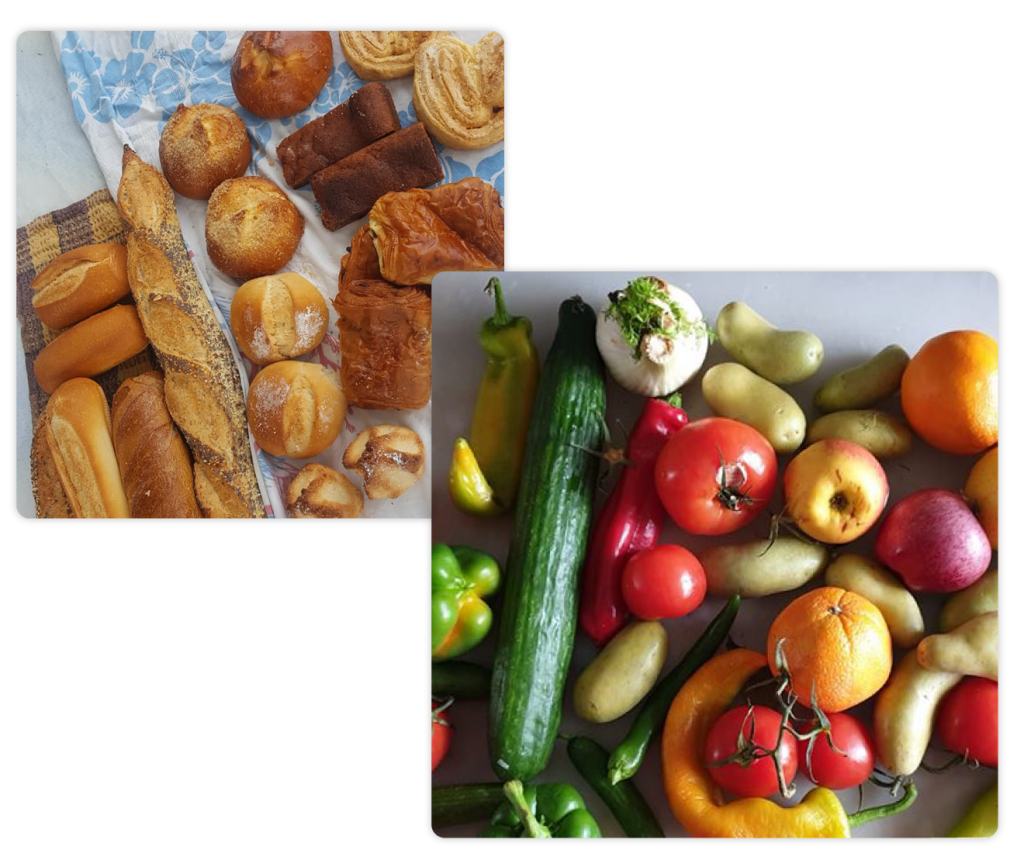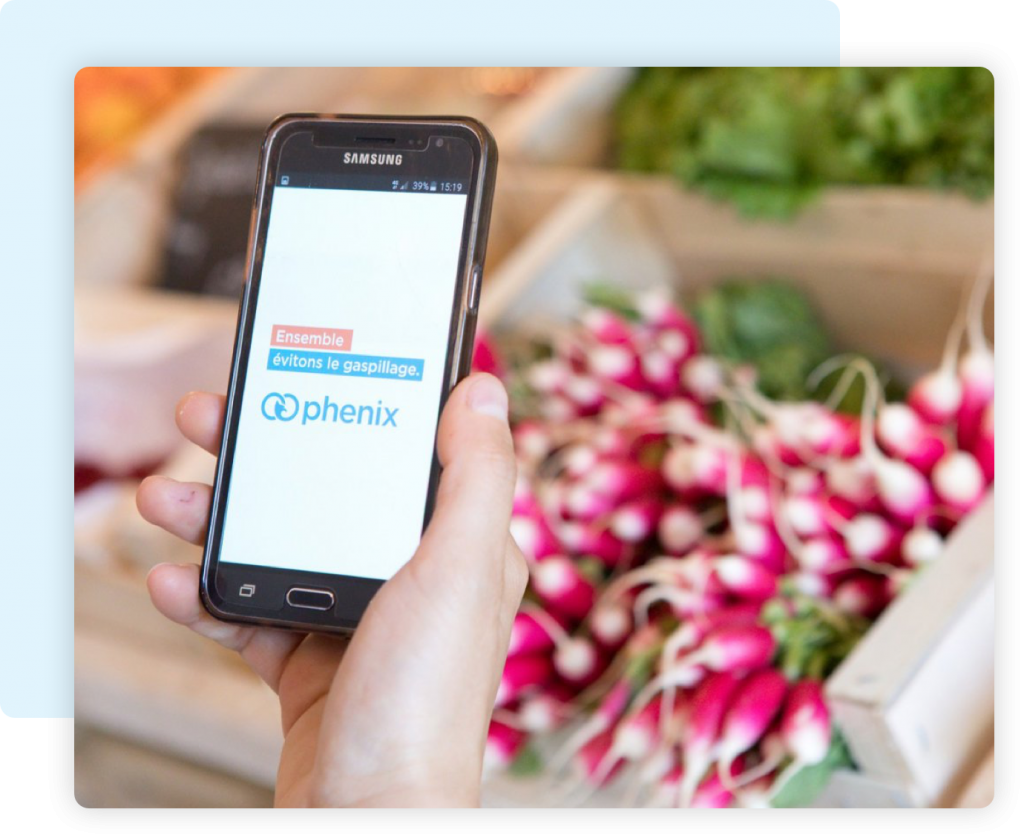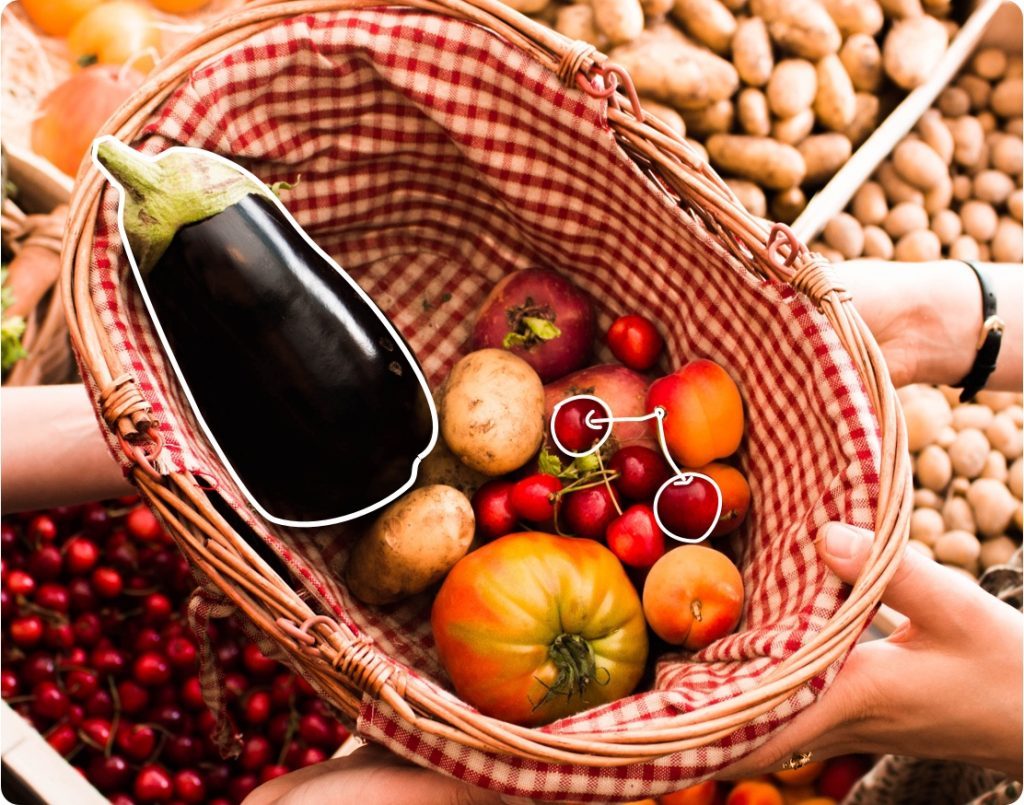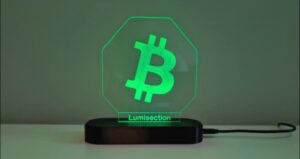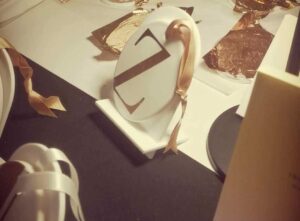Get some ideas to upcycle and recycle your daily habits, and talk with Jean Moreau from the Phenix application!
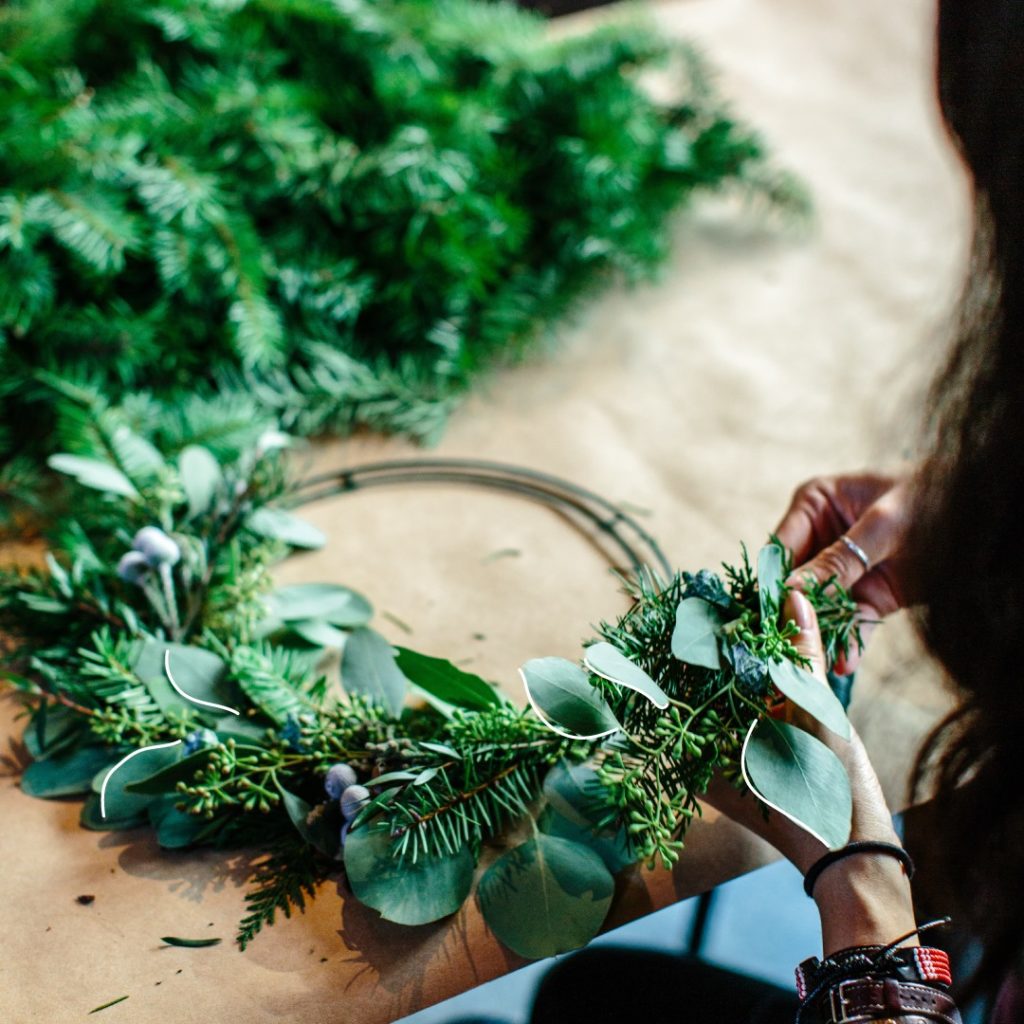
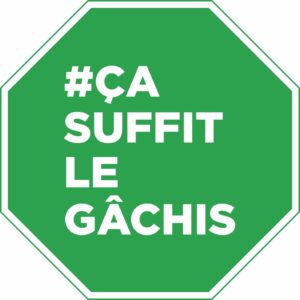 Since the industrial revolution, the twentieth century has seen the development of a consumer society which has considerably increased its use of natural resources by multiplying it tenfold.
Since the industrial revolution, the twentieth century has seen the development of a consumer society which has considerably increased its use of natural resources by multiplying it tenfold.
Indeed, according to the United Nations Environment Program (UNEP), without a sudden change, the level of consumption of natural resources will be critical before the middle of this XXIth century (Source ADEME: Expertises Circular Economy). Faced with this emergency, the circular economy is bringing a new economic model whose objective is to produce goods and services in a sustainable manner, by limiting the consumption and waste of resources (raw materials, water, energy) as well as the recovery of the majority of its waste (cover photo: Phenix).
In order to treat this concern, a profound change in organizations and lifestyles is happening, through multiple initiatives being nowadays undertaken to change mentalities and in many domains, that we are glad to enunciate you in this subject. By Alexis Lery & Alex Plato
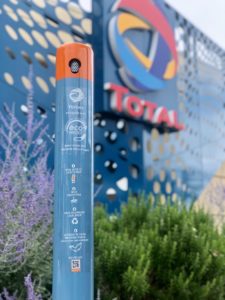
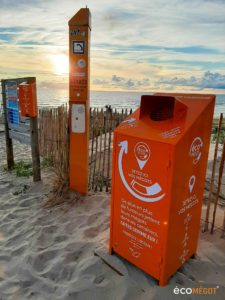
First of all, if you worry about how the ending of your cigarette wastes, ÉcoMégot is an initiative born in 2016 from an alarming observation on the toxicity of cigarette butts and the number of horrible stubs thrown on the ground, visible everywhere from the streets and the beaches. Therefore, their concept was conceived to be simple, while offering an innovative, comprehensive and local solution for raising awareness, collecting and recycling cigarette butts, and even creating some special zero stubs spaces, spread throughout the territory. Thereafter, this classified hazardous waste may be transformed as a resource and even a vehicle for commitment, instead of laying on the ground. With a precise goal to clean up cities and the surrounding natural environment, ÉcoMégot creates long-lasting jobs and promote the recycling industry. Moreover, their environmental and social values have been granted by an ESUS accreditation (Solidarity Company of Social Utility), in 2019.
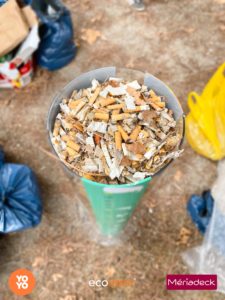

As far as we know, cigarettes butts are dangerous wastes. In France, only the energy recovery sector is validated by the government, when these stubs are transformed into Solid Substitution Fuel (CSS). This substitute fuel replaces fossil fuels and then supplies cement kilns near your neighborhood.
That’s why, ÉcoMégot has developed a network for promoting your cigarette butts into CSS form, throughout the country. Because the association is working to reduce the impact of cigarette butts on our environment, it is essential to pay attention to our carbon impact as well. This is why ÉcoMégot ensures that your cigarette butts are used locally! Adding to this, at your request, ÉcoMégot remains at your disposal to organize awareness-raising actions in your establishment or at your event, led by their own crew of helpful ambassadors.
Thus, several actions are available to you, such as holding a stand in a company, organizing plenary sessions, among many other types of informative actions in the field to meet users and citizens, notably during the organization of collection events. If that’s not enough, the ÉcoMégot team could advise you and propose some closer professional consulting to fulfill your cleaning need of awareness.
More information on the official website.
Lately, if you’re more industrial oriented… Have a look at the combined project of Atlantem Industries and Fenétréa which joined together to create the Menrec venture. Indeed, this new structure has been dedicated to recycle end-of-life joinery. Born out of a common reflection, by these two leading joinery manufacturers in Brittany, Menrec is in line with the objectives set by the Anti-Waste Act for a Circular Economy (AGEC). For your information, until now, still considered as waste, end-of-life joinery is generally buried into quarries, although it could represent with a better management, an important and endless source of new raw materials and carbon savings.
Settled around a multiple action made to valorize several materials, starring end-of-life joinery (composed of wood, PVC, aluminum and glass), these can be thereafter reused for the manufacture of new solutions (windows, doors and shutters). In fact, a corporate approach that fully responds to the actual demand in renovation projects, thanks to an average lifespan of 30 years for these recycled products. As far as we know, this consortium has integrated two other family businesses with complementary skills, which are Riou Glass, an independent French leader in glazing, and the Bohelay Group, a transport company specializing in recycling logistics. All of the collaborators are convinced by this common turnkey solution for the collection and dismantling of joinery, reaching the end of their cycle and joining then the circular economy system.
In the other hand, Menrec aims to promote the development of social employment, by providing a selection of skilled installers (craftsmen, carpenters, networks of window workers, etc.), located for the moment in the western part of France. More information on the official website.
When do you don’t know what to do about your furniture or your high-tech material but you wish them a second life? Therefore, the purpose of the Co-Recyclage.com interface offers to anyone the opportunity to donate or for others to find second hand objects (from fridges passing by pianos even until camping-cars) able to be reused, whether they need to be repaired or be employed on the way. In fact, it’s an easy way for citizens to give a second chance to their personal items instead of throwing them away, along fostering social connections across the neighborhood and of course limiting the production of waste (photo credits: Co-Recyclage).
When you create your account, you would notice that this service is really simple and greatly simplifies the procedures for users. Indeed, in a single form, you can create your advertisement for your object to offer illustrated with a photograph. If you represent a company and needs to move away a lot of stuff, this platform is also made for your needs. At last, if you can’t find any taker, you may be redirected to send your object into the bulky items removal form.
More information on the official website.
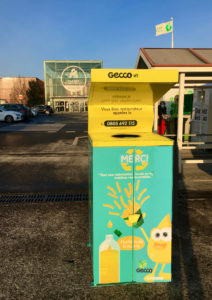
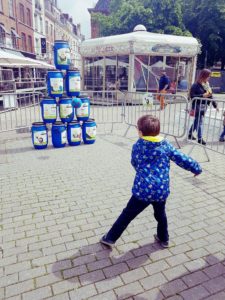 Regarding the wide food circle, don’t miss the ambitious initiative launched by the social company Gecco, located in the Hauts-de-France, which has been designing solutions since 2007 to recover waste from restaurants in short circuits.
Regarding the wide food circle, don’t miss the ambitious initiative launched by the social company Gecco, located in the Hauts-de-France, which has been designing solutions since 2007 to recover waste from restaurants in short circuits.
Their efficient project is to collect any kinds of used edible oils and bio-waste from catering professionals (hotels, cafés, restaurants), along frying oils generated by individuals, via a network of terminals set up in waste collection centers and partner stores (find your nearest Contribution Point here). Otherwise, this platform can support you towards better management of your random used cooking oils and bio-waste through a series of tutorials and formations (photo credits: Gecco).
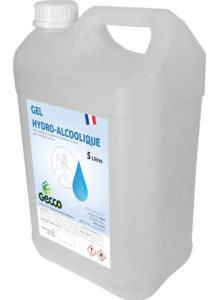
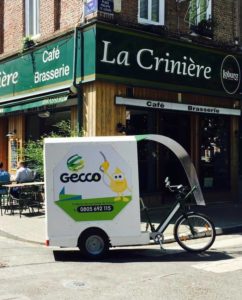 At the end of the chain, Gecco transforms this unexpected huge amount of waste into brand new eco-products, which can be sold to communities, professionals and individuals (such as biodiesel, biogas, heating logs, biolubricant for chainsaws among many other solutions). Don’t forget that any waste can be converted into a useful good, which is part of a logic of environmental and social performance beneficial to all and that anyone should adopt one day or another? Recently, Gecco innovates and proposes a nearly pure vegetable glycerin, made from reused fats. Renowned for its moisturizing properties and this recycled product may be added to all your homemade cosmetic preparations, or clean and soften your clothes, or even become an DIY ally thanks to its plasticizing properties, as a drying retarder or anti-freeze.
At the end of the chain, Gecco transforms this unexpected huge amount of waste into brand new eco-products, which can be sold to communities, professionals and individuals (such as biodiesel, biogas, heating logs, biolubricant for chainsaws among many other solutions). Don’t forget that any waste can be converted into a useful good, which is part of a logic of environmental and social performance beneficial to all and that anyone should adopt one day or another? Recently, Gecco innovates and proposes a nearly pure vegetable glycerin, made from reused fats. Renowned for its moisturizing properties and this recycled product may be added to all your homemade cosmetic preparations, or clean and soften your clothes, or even become an DIY ally thanks to its plasticizing properties, as a drying retarder or anti-freeze.
More information on the official website.
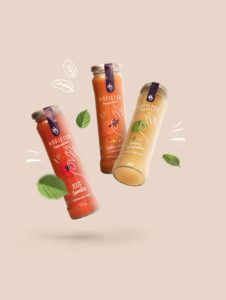
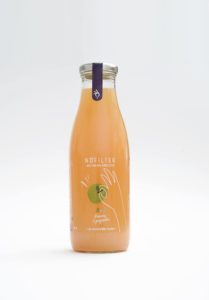 Behind the natural NoFilter project, the French entrepreneur Marin Mulliez was always fond of a diet that respects people and the planet. That’s why in 2014, while being a student at the ESCP university, he decided to spend his gap year in San Francisco, in order to give a special meaning to his starting career. Then, he was happy to join a first internship in a start-up that developed certified organic and ethical products made from coconut water, and this experience was a real trigger to improve his commitment.
Behind the natural NoFilter project, the French entrepreneur Marin Mulliez was always fond of a diet that respects people and the planet. That’s why in 2014, while being a student at the ESCP university, he decided to spend his gap year in San Francisco, in order to give a special meaning to his starting career. Then, he was happy to join a first internship in a start-up that developed certified organic and ethical products made from coconut water, and this experience was a real trigger to improve his commitment.
Following a certain passion for a respectful agriculture in trade exchanges, he decided to settle a real challenge, either fighting food loss and waste, while supporting the ecological transition. Within an idea of directly upcycling the fruits and vegetables from producers, initially intended for the dumpster because of their size or aesthetic reasons.
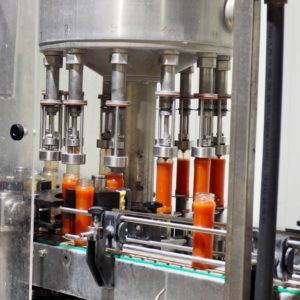 Starting from this fact, NoFilter opted to prepare genuine artisanal juices with these worthy ingredients, that are not really beautiful but taste very good… And therefore, in order to source the necessary ingredients for his juices, the dynamic Marin went to meet French farmers, on either small and large farms, and offered them a contract or rather a one-shot partnership (photo credits: NoFilter).
Starting from this fact, NoFilter opted to prepare genuine artisanal juices with these worthy ingredients, that are not really beautiful but taste very good… And therefore, in order to source the necessary ingredients for his juices, the dynamic Marin went to meet French farmers, on either small and large farms, and offered them a contract or rather a one-shot partnership (photo credits: NoFilter).
The goal of this sustainable project is multi-faceted, through a durable engagement with the several producers, allowing some stable volumes and prices. This stability in time is made to support some of them within their transition to reasoned farming methods, while guaranteeing the health and safety of these farm workers.
Ultimately, through these various ambitious agreements, Marin and his team wish to promote biodiversity, by protecting pollinating insects, avoiding chemical treatments after harvest and, more generally, eliminating all traces of chemicals in fruits and vegetables. In fact, a series of actions to preserve soil quality, optimize the soil management of resources, fighting against water pollution and above all, reducing the global environmental impact…
The result is a varied range of colorful blends of precious mixed solutions of fruits and vegetables, such as Tomato-Red Pepper-Cayenne Pepper, 100% Tomatoes, Carrot-Lemon, Carrot-Lemon-Turmeric, Apple-Ginger, Apple-Parsley-Lemon. Thereafter, in each of these recipes, there are no more than 3 ingredients that are of course fully traceable, before being hand-pressed and pasteurized for a longer lifespan.
More information on the official website.
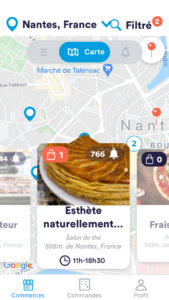
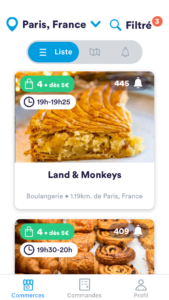 If you walk through your quarter, you would surely notice that many businesses in your neighborhood (supermarkets, restaurants, bakeries, etc.) are forced to throw away some of their products because they were not have the luck to be sold them during the day. Therefore, the Phenix application allows you to save their treasures at a low cost, since they’re at the limit to be outdated. Once you’ve downloaded it, decide yourself among the countless thematic baskets of each merchant (photo credits: Phenix).
If you walk through your quarter, you would surely notice that many businesses in your neighborhood (supermarkets, restaurants, bakeries, etc.) are forced to throw away some of their products because they were not have the luck to be sold them during the day. Therefore, the Phenix application allows you to save their treasures at a low cost, since they’re at the limit to be outdated. Once you’ve downloaded it, decide yourself among the countless thematic baskets of each merchant (photo credits: Phenix).
The Phenix adventure started in 2014, working hand in hand with more than 1,500 associations, in order to help partner stores to donate their unsold items. In fact, this is such a challenge to remove all this waste, starring 40 tons of food that are still thrown every second, around this Planet that would stay blue at this rhythm ! This is why, merchants of all the specialities have the opportunity to sell their unsold products at cut prices on this Phenix application and are counting on you to fight with them!
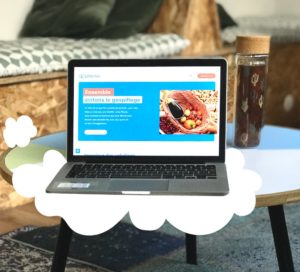 It’s not a secret that we produce more than we consume, so it’s becoming a condition to avoid throwing away in the trash, what could remain good to get! Thus, with the Phenix application, you would do something good for the Planet, while saving money on your shopping budget. For your information, the different baskets are sold on average half price and sometimes more, which is a rather real good discount accessible in just a few clicks on your smartphone.
It’s not a secret that we produce more than we consume, so it’s becoming a condition to avoid throwing away in the trash, what could remain good to get! Thus, with the Phenix application, you would do something good for the Planet, while saving money on your shopping budget. For your information, the different baskets are sold on average half price and sometimes more, which is a rather real good discount accessible in just a few clicks on your smartphone.
Obviously, there is still something available close to your place and at any time, suitable for anyone’s taste. Furthermore, since you could find specific baskets, adapted to each one diet, from fresh lots of fruits and vegetables, pastries, flowers and even organic products. If you wanna learn more about the philosophy of Phenix, below we had the privilege to interview its founder Jean Moreau.
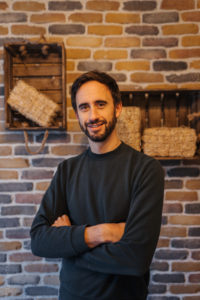 – What’s was the starting point that motivated your recycling project of Phenix? Where did you get the inspiration?
– What’s was the starting point that motivated your recycling project of Phenix? Where did you get the inspiration?
After several years as a M&A banker I had a wake-up call. Despite the advantages of a job like that, as the days went by I had the feeling that something was missing. I had the deep willingness to switch and dedicate myself to a job where I would be able to make a positive social and environmental impact. Diving into this, I realized that if food waste were a country, it would be the third biggest emitter of greenhouse gases.
Worldwide a third of the produced food is wasted at different levels of the value chain and in France, it amounts to 10 million tons of food waste per year. I do not know about you, but as far as I’m concerned, these numbers leave me speechless. At this point with my co-founder Baptiste, we decided it was time for us to try to bring some common sense to this situation, starting small.
That’s why I decided to escape the gilded cage to move into action with a clear vision: integrate the end-of-life product in the value chain and completely renew the concept of waste in the supply chain. I had the conviction that technology could be an answer to this challenge.
– How long it took to launch this application and how were you welcomed by your different suppliers?
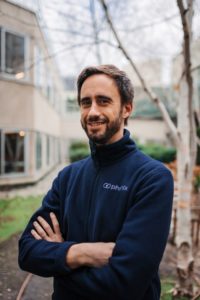
The initial mission of Phenix is simple and dedicated to B2B: help food professionals reducing waste. To succeed, we offer different channels to retailers, producers, wholesalers, and industrials. Phenix contracts a digital solution that matches the offer of near-to-expiration food to the demand from NGOs and charities through a B2B platform. In 2019, in addition to the B2B business we launched the B2C Phenix mobile application.
We already had the expertise from our years of expertise on the B2B side and we already had the trust from several stakeholders in the retail sector so it helped us a lot. At the beginning, we launched it in a few big French towns before extending it to the rest of the country then in Portugal and Spain.
This month we are launching Belgium and Italy! Since its creation in 2019 the app has already convinced more than 1,5 million citizens to take concrete action by buying unsold products at reduced prices from more than 6,000 stores. In France, the consumer accounts for one third of food waste. It is therefore a new mission that has been added for Phenix: to convince citizens to act against food waste!
We are raising consumer awareness, we are more and more in a B2C culture, centered on the consumer. We also launched a supermarket chain like no other: “Nous anti-gaspi” grocery stores. These are stores where you can find products that do not comply with the standards of mass distribution. We already have 12 stores in France and aim to reach 50 stores by 2024.
– At the moment, how many stores and restaurants the customers could find in Phenix and in how many countries?
In 2020, we saved 44 million meals from the garbage, most of it through donations to charities. We rely on a network of 1,500 partner associations. On the app we have more than 6,000 stores. Most of them in France and the rest in Spain and Portugal. This month, we launch Italy and Belgium. The objective is to be active in 10 countries by 2023. We want to focus on the european continent because with North America this is where most of the food waste is located. Besides, you should know that in rich countries, the consumer is highly responsible for food waste : 33% in France for example, when retailers are responsible for “only” 14% of the lost (ADEME study on food waste in France, 2016).
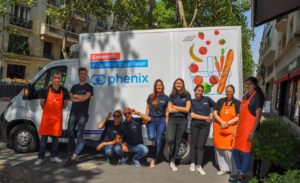
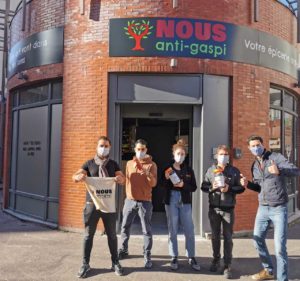
– What are your next goals in the future? New regions or new products for example?
The very special context of the pandemic has pushed us to accelerate the implementation of our strategy. 2020 has been a context where the social mission of Phenix took again more meaning and proved to be more decisive than ever: on the app we increased x5 our users. First we aim to keep growing the core business in France and bring the fight to Europe by expanding to Belgium and Italy. We have the tools, the brand, the experience, and those markets are quite open, and we hope we can build up quickly.
Besides, we will start dealing straight with the initial producers to give a chance to their unsold products or production. Doing that, we will take great care not to jeopardize the current stream of business of our retailers partners by privileging products that we cannot source from them. We are also working on developing a digital intelligent service enabling retailers to manage their about-to-expiry products directly in store.
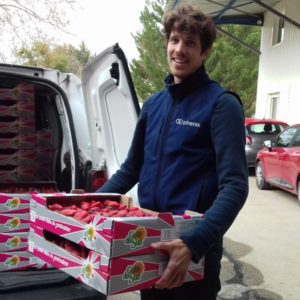
– Do you also adapt your commitment against the food waste into the fight against food shortage?
Of course ! For us these are two parts of the same problem. The best way to end with food waste is, I think, by connecting those who have too much food with those who need food. This is about social justice in my opinion. We cannot waste food while you have people starving in the streets. Hunger is not a monopoly of poor countries. In France, we do have more than 8 million people suffering food insecurity (Report from the French Senate, January 2021). It’s not happening far away : it’s happening everywhere, even in the richest countries. We do need to understand that we are not only destroying economic value by wasting food : we are destroying the health of other people living in our country, citizens that cannot afford healthy food because they don’t have the money to do it. It’s a shame and we need to raise awareness. That’s why we think that food waste is both a social and environmental problem.
More information on the official website.
